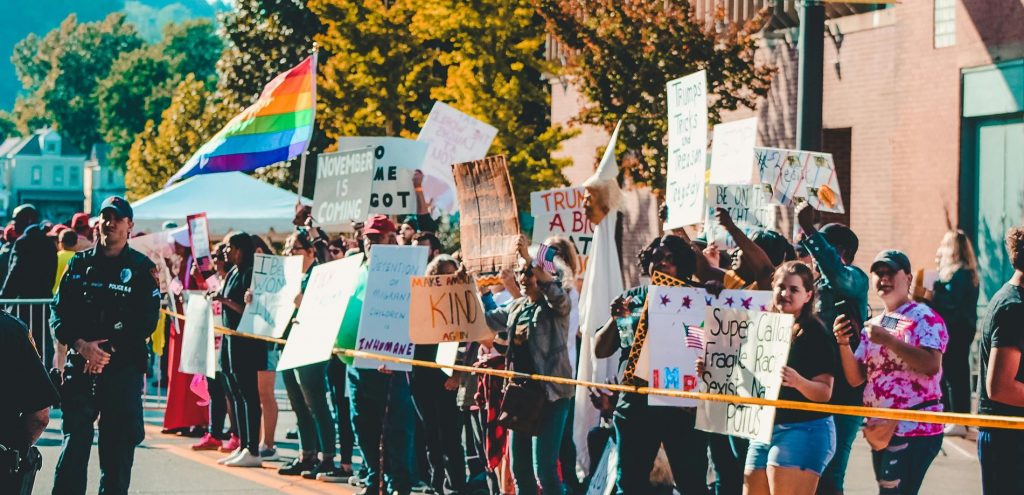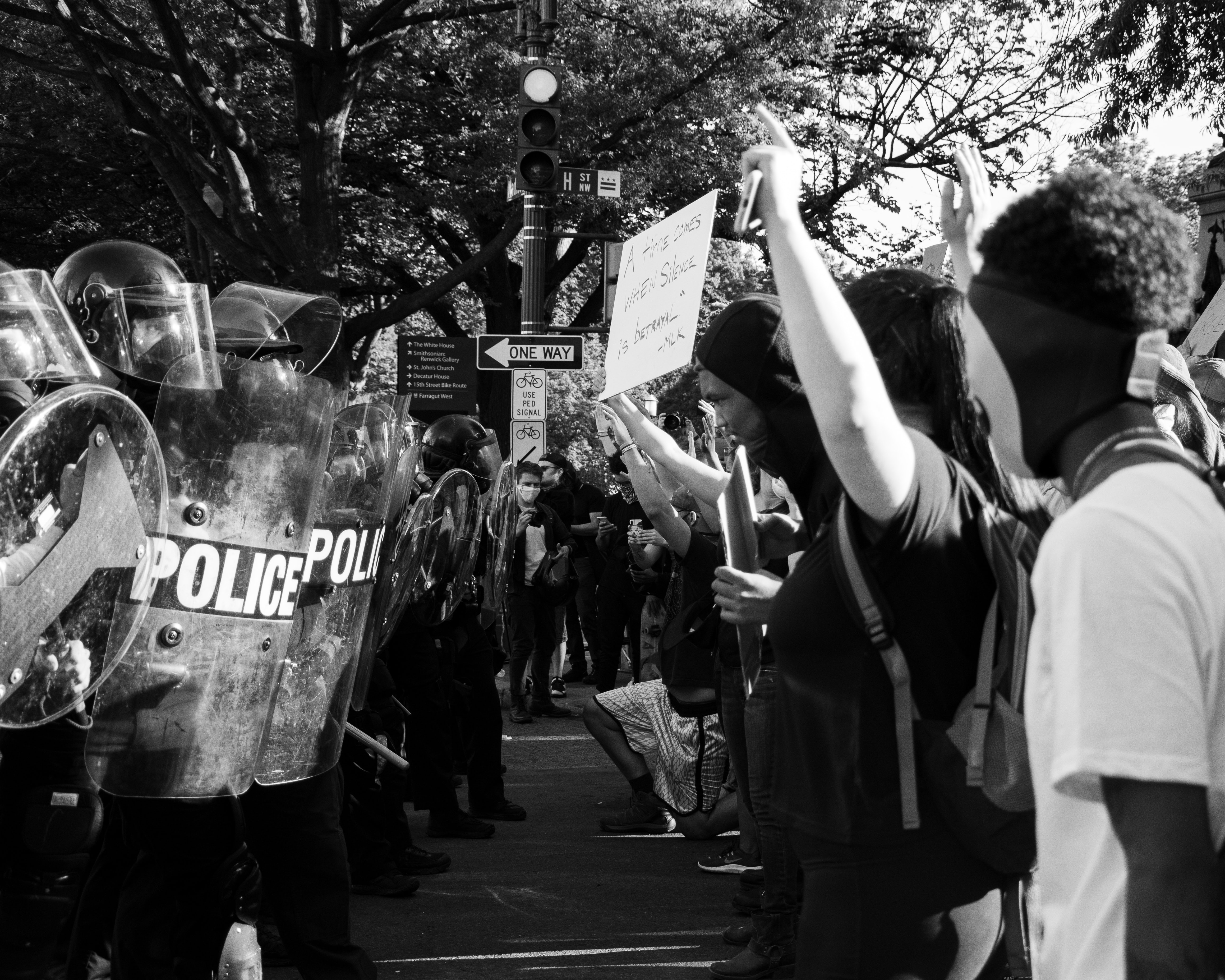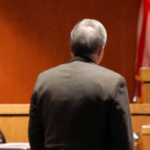Protests and Demonstration Charges and Penalties in Michigan
Here is what you need to know about criminal charges that might result from participation or attendance at a protest or demonstration.

Understanding the Legal Distinctions in Protesting
It is crucial to recognize the difference between peaceful, legal protesting and behavior that may be deemed disorderly or destructive. Peaceful protests and demonstrations are characterized by non-violent actions and are protected under the First Amendment. However, when demonstrations obstruct public ways, destroy property, or create a substantial risk of causing public inconvenience, annoyance, or alarm, they can cross the legal boundary into disorderly conduct or other criminal charges. LEWIS & DICKSTEIN, P.L.L.C.’s Defense Team has extensive experience defending protestors and demonstrators.
In Michigan, common charges against protestors might include the following:
- disorderly conduct,
- disturbing the peace,
- trespassing, rioting, or
- terrorism.
The exact charge depends on the nature of the incident. Each of these charges encompasses a variety of behaviors, from causing a public disturbance to engaging in violence or vandalism. All crimes in Michigan are punishable by jail, prison, probation, and more. Anyone facing such allegations should take the charges seriously and retain experienced defense counsel immediately.
Michigan Laws on Free Speech and Assembly
In Michigan, as in the rest of the United States, the rights to free speech and assembly are protected under the First Amendment of the U.S. Constitution and the Michigan Constitution (Article 1, Section 5). These laws guarantee individuals the right to express their opinions and gather peacefully. However, these rights are not absolute and can be subject to restrictions, particularly when public safety, traffic flow, or private property is involved.
For example, Michigan law permits the government to place reasonable time, place, and manner restrictions on protests and demonstrations, such as requiring permits for large gatherings, limiting the use of certain public spaces, or ensuring that demonstrations do not interfere with emergency services or public safety. Despite these restrictions, the government cannot silence protestors simply because it disagrees with their message.
Unfortunately, protestors and demonstrators often face criminal charges, such as disorderly conduct, trespassing, or resisting arrest, when police believe they have violated these restrictions or engaged in conduct that poses a public threat. Even peaceful protesters may be arrested if authorities perceive a risk to public order, which can sometimes lead to overreach or unconstitutional actions by law enforcement.
Defenses and Legal Strategies for Defending Protestors and Demonstrators
The criminal defense attorneys with LEWIS & DICKSTEIN, P.L.L.C. understand the nuances of these charges and employ various defenses depending on each case’s circumstances. For students who were peacefully protesting or demonstrating and are wrongfully accused, defenses might focus on the lack of intent to commit a crime or showing that the actions fell within their rights to free speech and assembly.
For those who may have stepped beyond legal boundaries, our defense strategies could involve demonstrating a lack of intent to cause harm or disruption or that any actions taken were out of character and an impulsive mistake. In cases where charges cannot be entirely dismissed, our skilled attorneys work tirelessly to mitigate the consequences through highly effective plea bargaining and sentence advocacy.

Defending Student Protestors: How LEWIS & DICKSTEIN, P.L.L.C. Can Help You
In today’s climate, student involvement in peaceful protests and demonstrations is increasingly common. However, the line between lawful protest and actions that may lead to criminal charges can sometimes blur. At LEWIS & DICKSTEIN, P.L.L.C., we are committed to defending protestors and demonstrators facing criminal charges related to participating in such events.
How Can HYTA Help Those Facing Criminal Charges Related to Protests and Demonstrations
The Holmes Youthful Trainee Act (HYTA), a unique legislative provision in Michigan, offers young individuals aged 17 through 25 a second chance when charged with certain crimes, potentially including those related to protests and demonstrations. Under HYTA, eligible youths can plead guilty to a criminal charge, but the conviction is not public. Instead, if the individual successfully completes the probation terms set by the court, the charges can be dismissed, and the record remains sealed. HYTA prevents a single mistake from having lifelong consequences, such as impacting future employment opportunities or educational prospects.
What to Do if Arrested at a Protest in Michigan
If you are arrested at a protest in Michigan, staying calm and understanding your rights is essential. The situation can be overwhelming, but how you handle yourself in the moments following an arrest can significantly impact your case. Here are some key steps to follow:
- Remain Silent – One of your most important rights is the right to remain silent. You are not required to answer any questions from the police, and anything you say can be used against you in court. Simply state, “I am exercising my right to remain silent,” and refrain from discussing the protest or your actions with law enforcement until you have legal representation.
- Ask for an Attorney – You also have the right to legal counsel. Ask for an attorney immediately, and do not answer any questions until your lawyer is present. At LEWIS & DICKSTEIN, P.L.L.C., we can help you navigate the legal system and defend your rights if you are arrested during a protest.
- Do Not Resist Arrest – Even if you believe the arrest is unjust, do not resist. Resisting arrest can lead to additional charges and escalate the situation. Comply with the officer’s instructions calmly to avoid further complications.
- Document the Incident – If possible, make a mental note of the officer’s badge number, the time and location of your arrest, and any witnesses or video recordings of the incident. This information could be vital to your defense. If you can, discreetly ask someone to record the interaction or take note of it themselves.
- Contact a Trusted Person – Once you are allowed a phone call, contact a trusted friend or family member to inform them of your arrest and let them know how to contact your lawyer. This person can help facilitate your defense and ensure you get the support you need.
- Stay Calm and Wait for Legal Representation – After your arrest, you will likely be taken to a police station or jail for booking. During this time, stay calm and wait for your attorney. Your lawyer will guide you through the next steps, including any potential bail hearings and your defense strategy.
At LEWIS & DICKSTEIN, P.L.L.C., we have extensive experience defending protestors and demonstrators facing criminal charges. If you or a loved one has been arrested at a protest, contact us immediately at (248) 263-6800 for a free consultation. We will work tirelessly to protect your rights and help you navigate the legal system.

When Protestors and Demonstrators Encounter Police Action
There are instances where police intervention in protests can escalate to arrests, sometimes based on misunderstandings or overzealous law enforcement actions. Police officers sometimes use charges like disorderly conduct to legitimize questionable police actions. Our experienced attorneys examine the validity of such charges and advocate for our clients’ rights, challenging any improper or unconstitutional conduct by law enforcement. When law enforcement officers violate our client’s rights, we can utilize a Motion to Suppress evidence as an effective tool to seek dismissal or reduction of charges when defending protestors and demonstrators.
Frequently Asked Questions (FAQs) About Defending Protestors and Demonstrators
What are my legal rights as a protestor in Michigan?
In Michigan, as in the rest of the United States, protestors are protected under the First Amendment, which guarantees freedoms concerning religion, expression, assembly, and the right to petition the government. Peaceful protesting is a fundamental right, but it’s important to note that the right does not extend to illegal actions, such as trespassing on private property, obstructing public pathways, or inciting violence. LEWIS & DICKSTEIN, P.L.L.C. can help you understand the specific legal boundaries of protesting and ensure that your rights are protected.
Can I be arrested for participating in a peaceful protest?
While the right to peacefully protest is protected, arrests can still occur if the protest is deemed to obstruct public order or if it transitions from peaceful to disruptive. For example, blocking traffic without a permit or refusing to disperse after lawful orders could lead to arrest. Suppose you are arrested during what you believe was peaceful activity. In that case, having skilled, experienced legal representation is crucial to argue the legality of your actions and advocate for your rights.
What should I do if I’m charged with disorderly conduct during a protest?
Contacting an experienced criminal defense attorney is essential if you or a loved one is charged with disorderly conduct. LEWIS & DICKSTEIN, P.L.L.C. specializes in defending such cases by examining all aspects of the charge, from the circumstances leading to your arrest to the conduct of law enforcement. The firm can challenge the prosecution’s evidence, negotiate for reduced charges, or, if necessary, defend you at trial to seek a dismissal of the charges.
How can a lawyer help if I’m accused of rioting or vandalism during a protest?
Accusations of rioting or vandalism are serious and carry significant penalties. A lawyer from LEWIS & DICKSTEIN, P.L.L.C. can help by crafting a defense strategy that may include proving you were wrongfully identified, did not engage in the alleged actions, or acted under duress. If evidence is lacking or improperly obtained, your lawyer can move to have the charges reduced or dismissed. Additionally, they can negotiate plea deals where appropriate, focusing on minimizing potential penalties.
What defenses are available for protestors wrongfully charged with a crime in Michigan?
Defenses for wrongfully charged protestors can vary widely but often include demonstrating a lack of intent, wrongful identification, exercising of lawful rights without crossing into illegal activity, and police misconduct. LEWIS & DICKSTEIN, P.L.L.C. employs a thorough approach, from investigating the full context of the incident to challenging the evidence presented. They ensure your side of the story is heard and rigorously defended, leveraging their deep knowledge of constitutional rights and state laws.

How We Can Help Those Facing Criminal Charges Stemming from Protests and Demonstrations
LEWIS & DICKSTEIN, P.L.L.C. ensures students’ voices are heard and protected. Whether providing legal counsel when charges are first made, representing clients in court, or negotiating with prosecutors and judges, our goal is to achieve the best possible outcome for our clients. Our team’s deep understanding of state laws and constitutional rights positions us uniquely to defend protestors and demonstrators against felony and misdemeanor criminal charges.
If you or someone you know is facing legal challenges related to participating in a protest or demonstration, don’t hesitate to contact us. Our experienced defense lawyers are ready to help you navigate the complexities of your case and work toward a favorable resolution. For more information or to schedule a consultation, please visit our website or contact our office directly for a free consultation. Protecting your rights and your future is our top priority.
Call us today at (248) 263-6800 for a free consultation or complete an online Request for Assistance Form. We will contact you promptly and find a way to help you.













